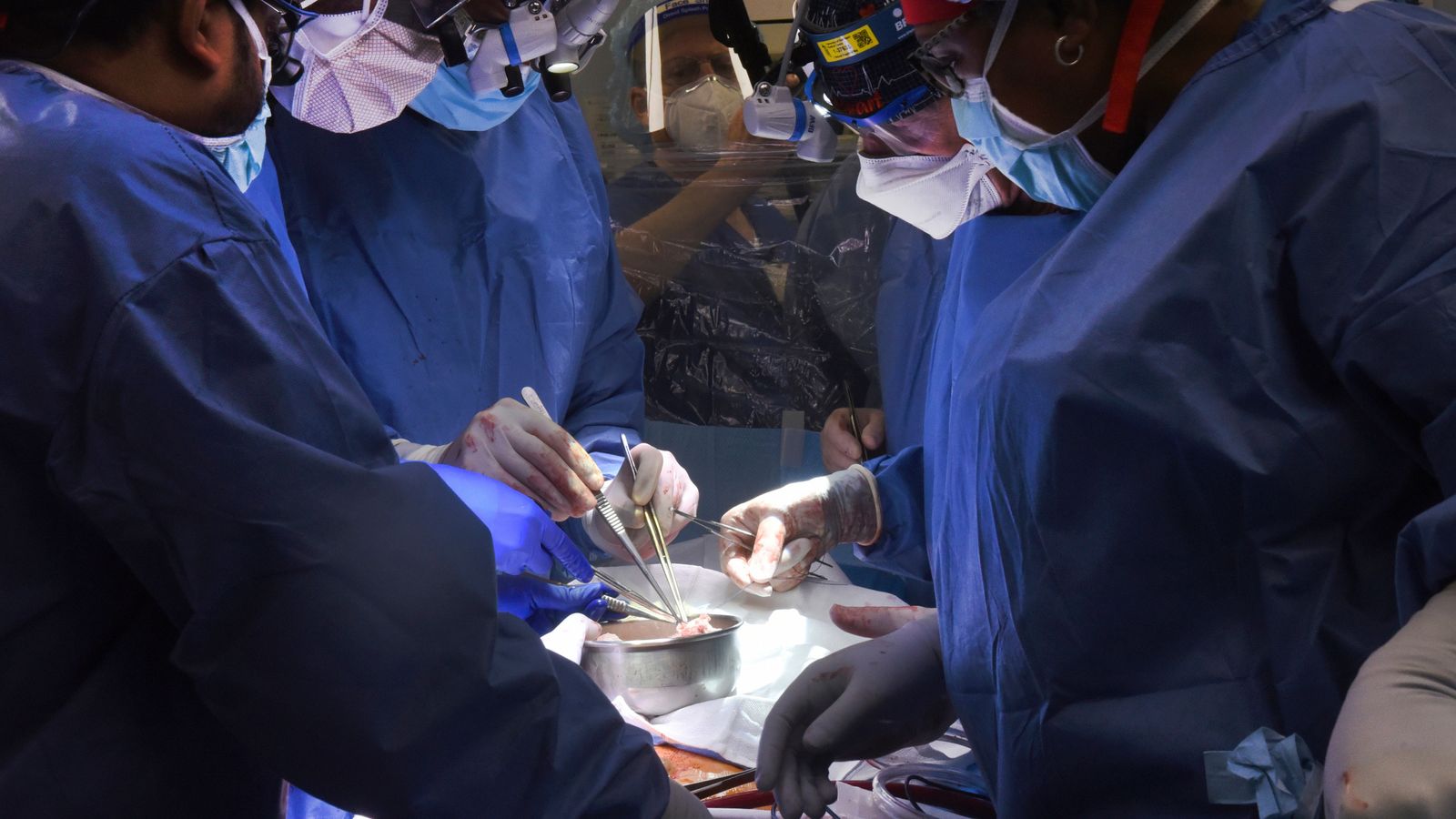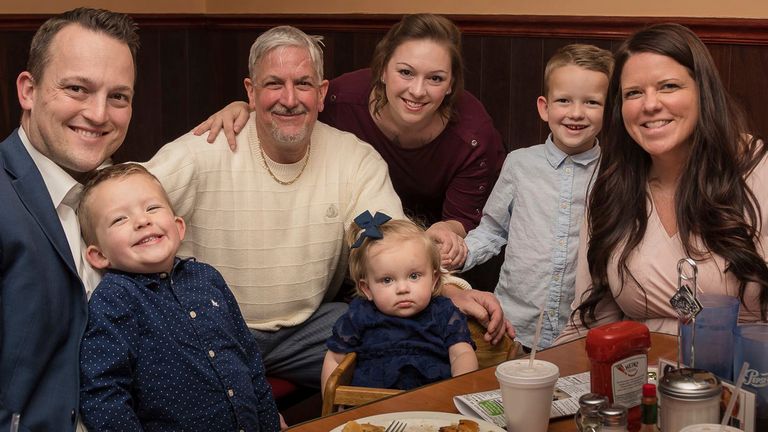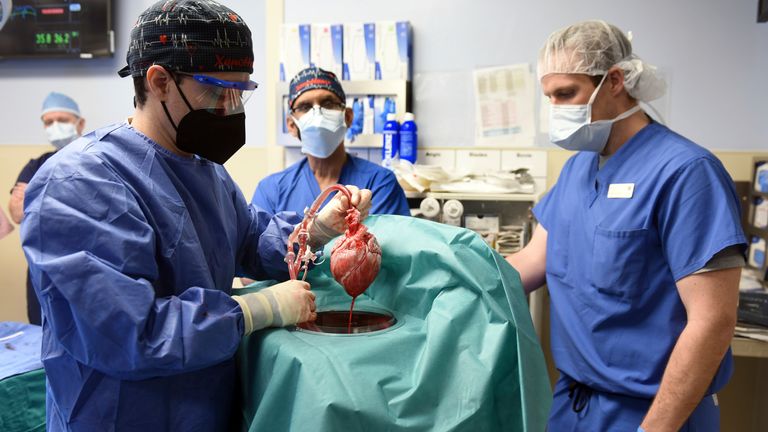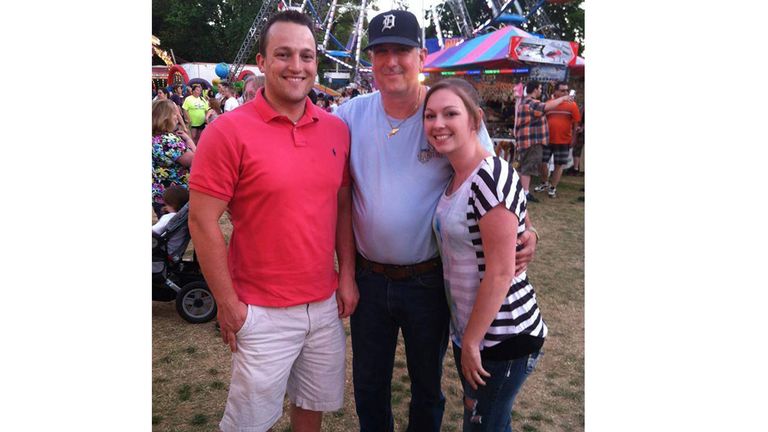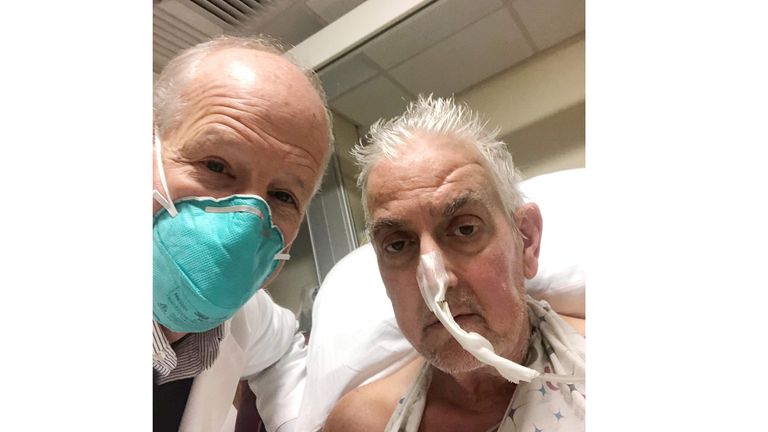A terminally ill man has been given the chance of life after his own diseased heart was replaced by a genetically-modified pig’s heart.
In a medical first, doctors in Maryland transplanted the animal’s organ into 57-year-old David Bennett and said on Monday that he is doing well three days after the experimental surgery.
It is too early to know if the operation will work but marks a step in the decades-long search by scientists to use animal organs for life-saving transplants.
Doctors at the University of Maryland Medical Centre said the transplant showed that a genetically-modified heart from a pig can be used in the human body without immediately being rejected.
‘Die or do’ surgery
In a statement on the day before the surgery Mr Bennett said: “It was either die or do this transplant. I want to live. I know it’s a shot in the dark, but it’s my last choice.”
His son David Bennett Jr said: “He realises the magnitude of what was done, and he really realises the importance of it.
“He could not live, or he could last a day, or he could last a couple of days. I mean, we’re in the unknown at this point.”
With a shortage of human organs for transplant, animal alternatives have long been the subject of intense research.
Last year, there were just over 3,800 heart transplants in the United States, a record number, according to the United Network for Organ Sharing (UNOS).
Dr Muhammad Mohiuddin, a scientific director for the university’s animal-to-human transplant programme, said: “If this works, there will be an endless supply of these organs for patients who are suffering.”
A ‘watershed’ event
The surgery, scientifically known as xenotransplantation, has previously not worked because of patients’ bodies rejecting the animal organ.
The most notable attempt was in 1984, when Baby Fae, a dying infant, lived 21 days with a baboon heart.
The surgeons in Maryland used a heart from a pig that had undergone gene editing to remove a chemical in its cells that’s responsible for the organ rejection.
The UNOS’s chief medical officer, Dr David Klassen, described the transplant as a “watershed event”, but warned that it is only a first, tentative step into exploring the animal-to-human organ transplants.
Xenotransplantation experiments are overseen by the Food and Drug Administration, which allowed the surgery under “compassionate use” emergency authorisation, which is made available when a patient has no other options.
In September 2021, scientists in New York suggested that gene-edited pigs might offer promise for animal-to-human transplants after they temporarily attached a pig’s kidney to a dead human body and watched it work.
According to Dr Robert Montgomery, who led the New York experiment, the heart transplant is “a truly remarkable breakthrough”.
